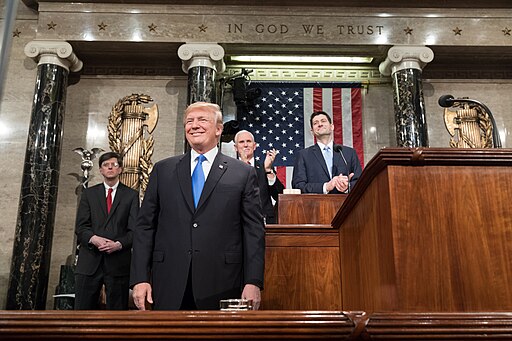
The longest partial “government shutdown” in US history ended on January 25. To get Leviathan’s gears turning at full speed again, President Donald Trump said uncle on funding for his pet border wall project in return for a three-week “return to normalcy.”
More interesting than the (quite possibly temporary) end of the “shutdown” is the direction things were taking right before the wall funding came tumbling down.
Transportation Security Administration employees called in sick en masse, creating long delays at major airports. IRS employees called back (without pay) to process tax returns followed suit.
At the other end of the spectrum, self-organizing volunteers, as well as employees/contractors sent by tourism-reliant businesses, turned out to clean toilets and so forth at national parks. The parks were “closed,” but visitors showed up anyway and enjoyed their time with nature.
A few days before the temporary truce, Association of Flight Attendants president Sara Nelson asked AFL-CIO leaders to call a general strike: A walkout by workers (especially union workers) across all industries, all over the country, in support of getting federal employees back on the job and back on regular paychecks.
Had the matter dragged on for a few more weeks, or even a few more days, Nelson’s call might have fallen on more supportive ears. And if the curtain goes up on “Shutdown Theater Part II: This Time It’s Personal” at the end of the three-week timeout, there’s a distinct possibility of something resembling just such a general strike.
But I’ve got a better idea. Instead of taking off work in support of furloughed federal employees, why not seize the jobs those employees are doing and free the employees, and the customers, from the competing manipulations of Donald Trump, Charles Schumer, and Nancy Pelosi?
The air transport sector is the most obvious place to start.
Airline and airport operators should get together during this three-week ceasefire and put together a plan to provide airport security, airplane safety inspection, and air traffic control whether the government is on the job or not.
Such a plan would work like this: The instant the federal government “shut down,” airport/airline representatives would inform Washington that flights will continue, and that they will continue on time and without undue passenger delays for security screening, period.
If TSA shuts down security screening points for lack of personnel, the airports will either re-open those lines with their own screeners (perhaps hired from the ranks of unpaid TSA employees), or simply wave passengers through.
If the FAA inspectors aren’t available to inspect planes, the airlines will use their own mechanics.
If federally employed air traffic controllers aren’t willing to work without pay, the airlines will hire and pay them.
But either way the flights happen, unless armed troops are sent in to stop them. And if the airlines/airports take over those jobs, no backsies. Once they go private, they stay private. Washington, you’re FIRED.
Time for a gut check to see if politicians really want to keep playing the “shutdown” game.
Thomas L. Knapp (Twitter: @thomaslknapp) is director and senior news analyst at the William Lloyd Garrison Center for Libertarian Advocacy Journalism (thegarrisoncenter.org). He lives and works in north central Florida.
PUBLICATION/CITATION HISTORY
- “My proposal for the next government ‘shutdown,'” Richmond, North Carolina Observer, 01/29/19
- “The Fired Next Time: A ‘Shutdown’ Proposal,” by Thomas L. Knapp, River Cities’ Reader (Iowa), 01/29/19
- “A ‘shutdown’ proposal: Washington, you’re fired,” by Thomas L. Knapp, Hendricks County, Indiana Flyer, 01/30/19
- “The Fired Next Time: A ‘Shutdown’ Proposal,” by Thomas L. Knapp, CounterPunch, 01/31/19
- “Proposal for a ‘shutdown,’” by Thomas L. Knapp, Kemmerer, Wyoming Gazette, 01/31/19
- “The Fired Next Time: A ‘Shutdown’ Proposal,” by Thomas L. Knapp, Ventura County, California Citizens Journal, 02/01/19
- “Use the next shutdown to privatize federal functions,” by Thomas L. Knapp, Greenville, North Carolina Reflector, 02/01/19
- “My proposal for the next government ‘shutdown,'” by Thomas L. Knapp, Sanford, North Carolina Herald (paywall), 02/01/19
- “The fired next time: A ‘shutdown’ proposal,” by Thomas L. Knapp, Florence, South Carolina News Journal [web and print editions], 02/05/19


